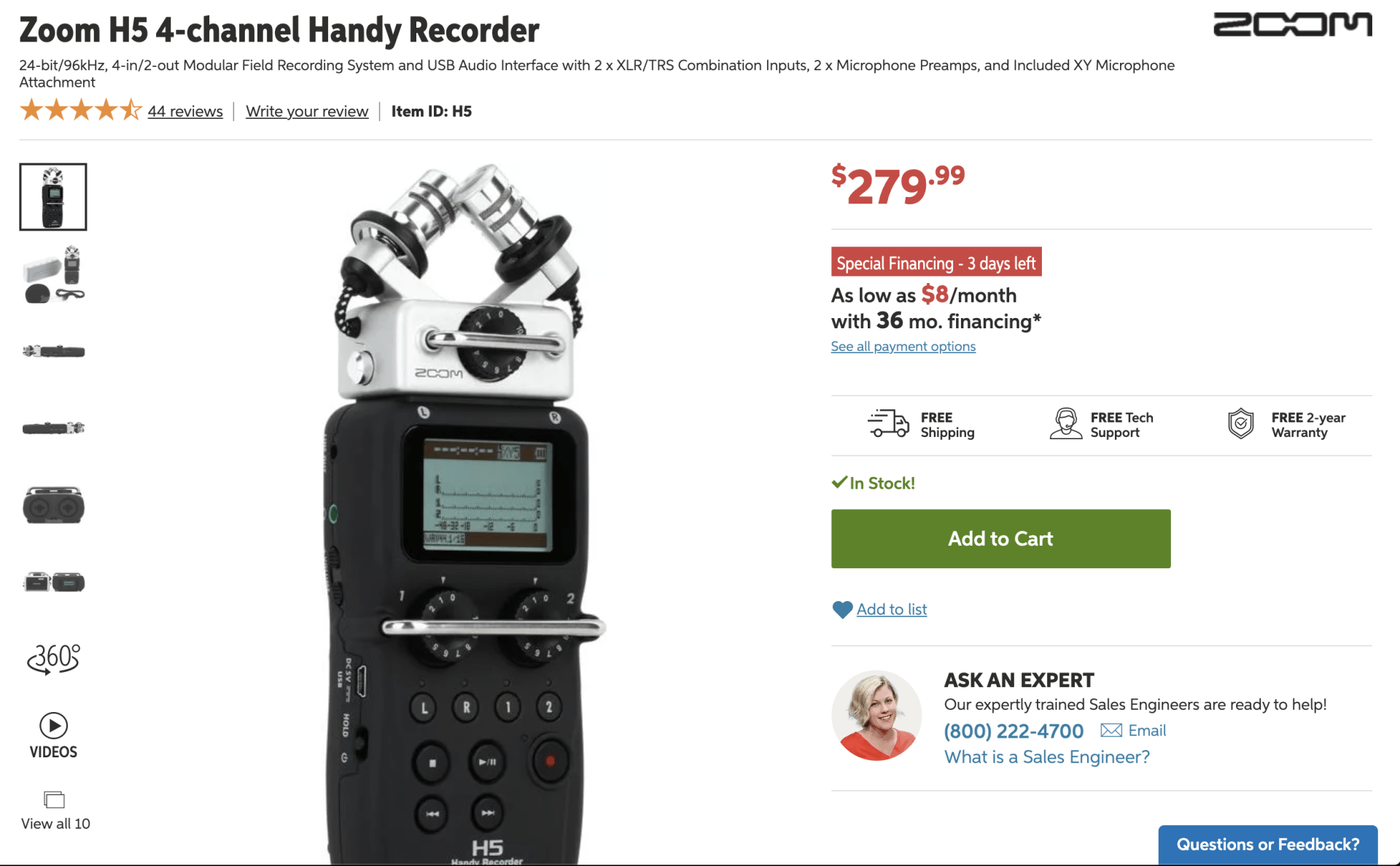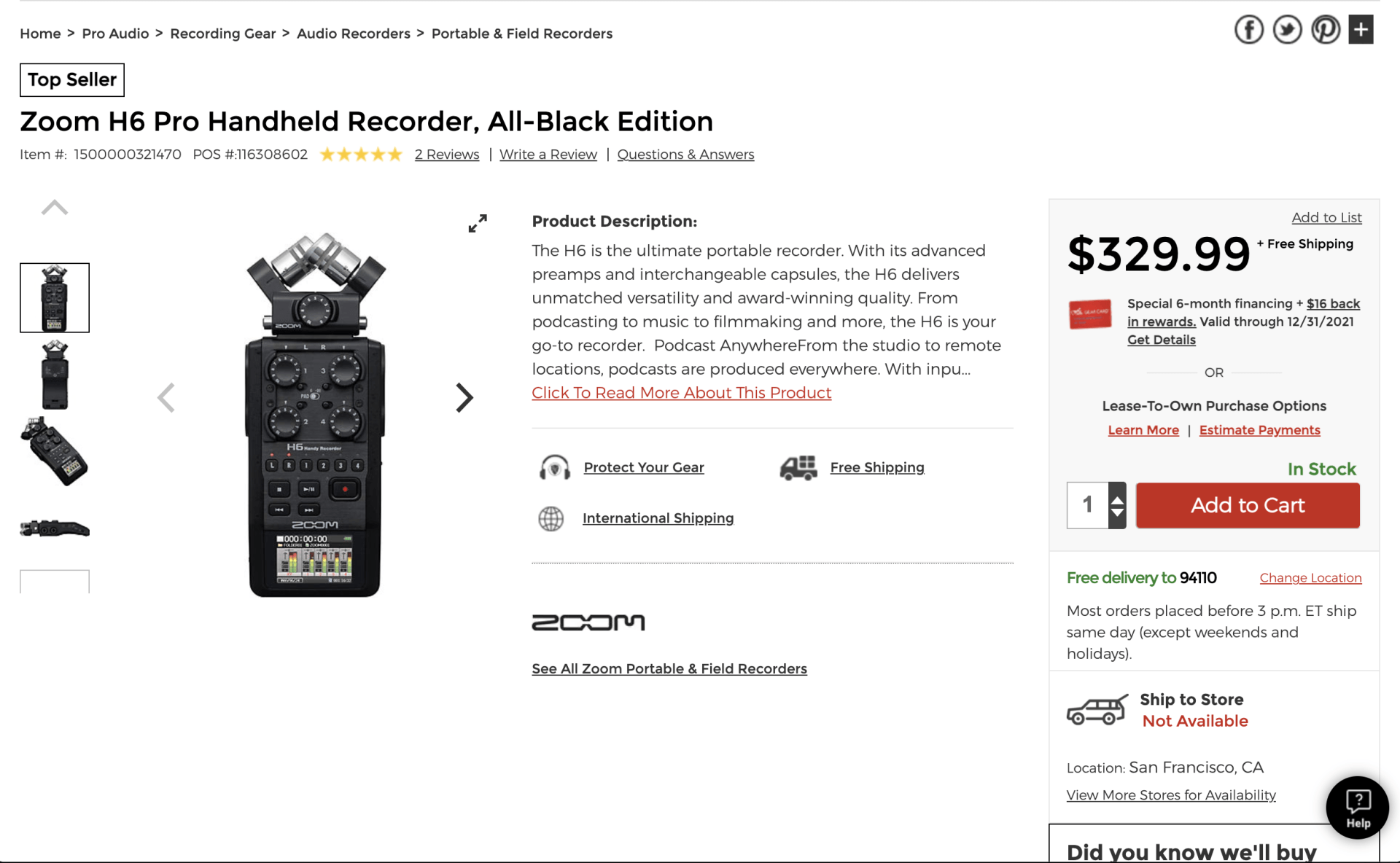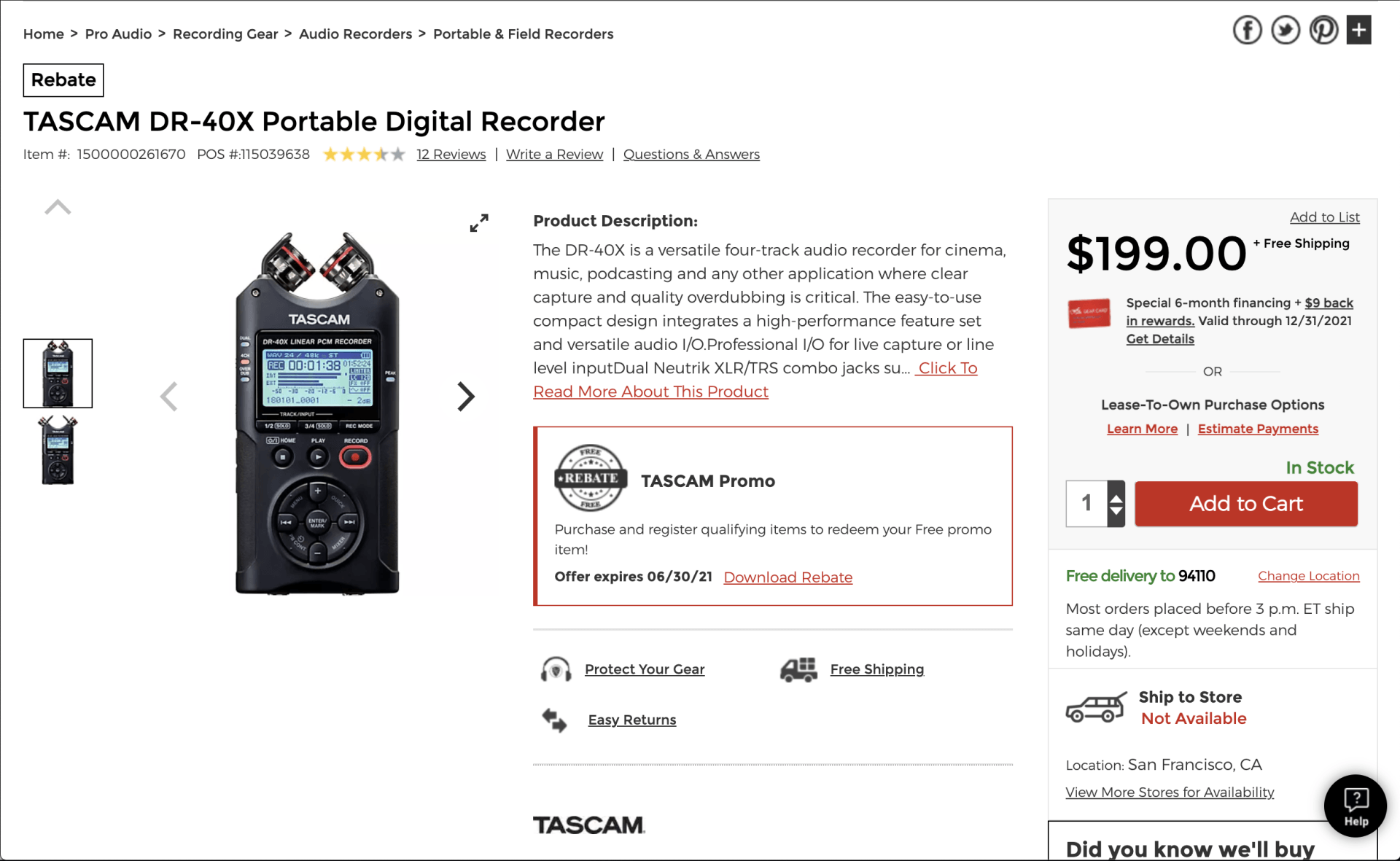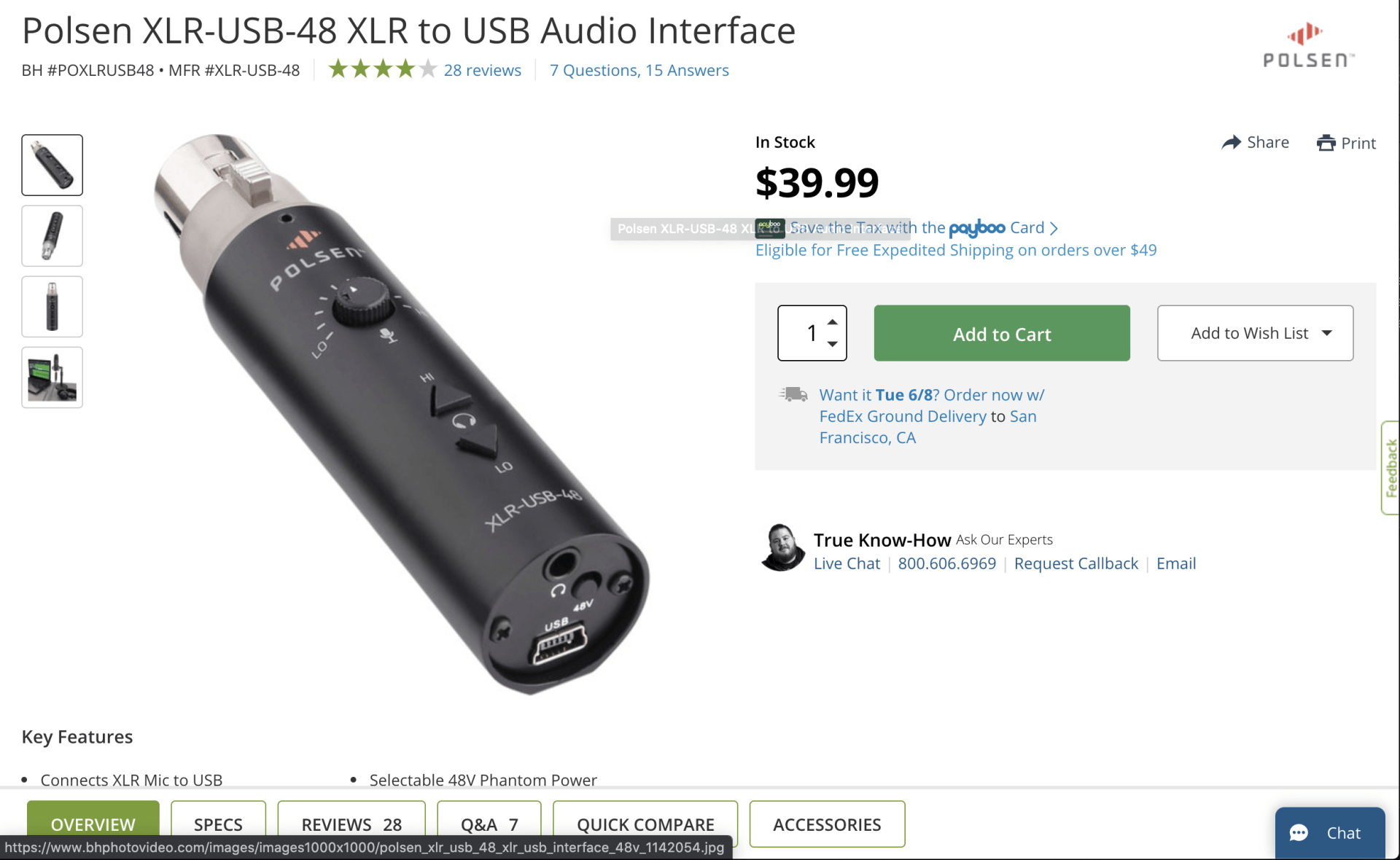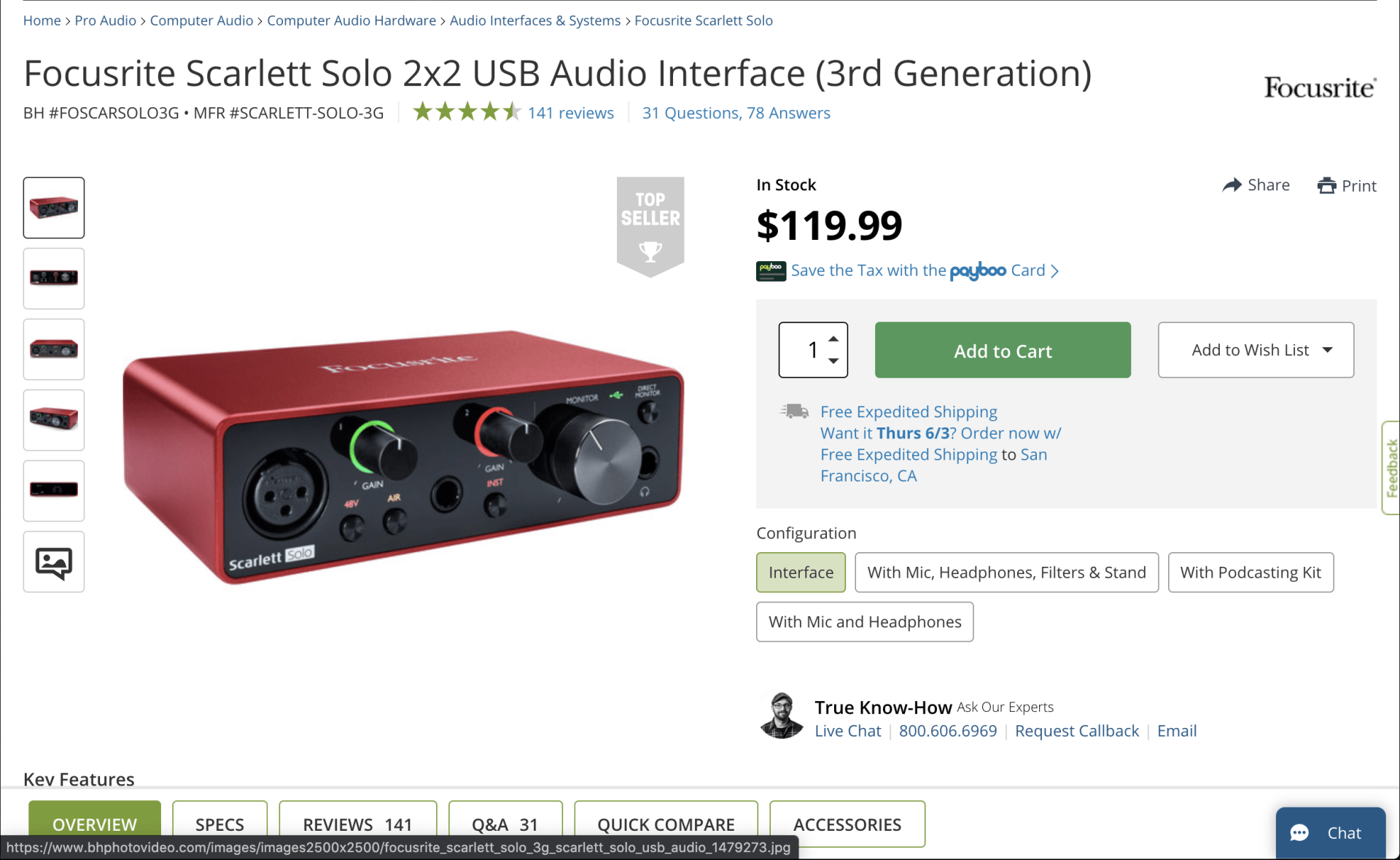Sound Recorders and Audio Interfaces
While you can record a video with your phone, the sound quality will not be good.
In the microphones section above, we provided a suggestion for one microphone that attaches to the lightning port of i-phones and produces a significant improvement over the phone's built-in microphone. There are similar ones for Android phones. If you are not comfortable editing video, this may be your best choice.
If you are comfortable with the idea of recording video and sound separately, you can connect a good microphone to your laptop or to a dedicated sound recorder, record your video with your phone, simultaneously record your sound with your laptop or sound recorder, and then substitute the separate sound track that you recorded with the good mic in place of the phone's built in sound track. In that case, read on. You can do this very easily using a video editor like Adobe Premiere, or whatever comes with your phone or laptop, or even in YouTube, for free.
You can record sound with your laptop, using a program like Audacity (free), GarageBand (comes with your Mac) or many others.
If you decide you want to have a dedicated sound recorder, there are some good choices that are affordable and will do an excellent job. If you buy a sound recorder, you should try to get one that has XLR inputs, so you can hook up an XLR microphone to it. The sound recorder will act as power source for the microphone.
If you decide to just record with your laptop, you will need to use a USB microphone because laptops don't have XLR sockets. If you want to use an XLR microphone with your laptop, you will need to use an audio interface device, to power the microphone. We show you a couple of affordable examples. The audio interface device has one or more XLR sockets where you plug in your microphone, and it uses a USB cable to connect to your laptop. It also allows you to control the input volume (gain) and you can plug a pair of headphones into it, to hear exactly what your microphone is feeding into the recorder. This will allow you to gauge how well the microphone is capturing your sound, and it will also allow you to hear in real time how your voice will sound to others, which is very important for an opera singer since it's very different from how you hear yourself.
